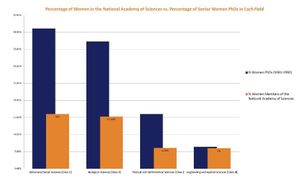Amidst more instances of retracted scientific papers, it’s helpful to reinforce positive academic behaviors. The editors of PLoS Computational Biology have come up with their top ten list for maintaining a strong reputation. It includes:
- Think before you act
- Do not ignore criticism
- Do not ignore people
- Diligently check everything you publish
- Always declare conflicts of interest
- Do your share for the community
- Do not commit to tasks you cannot complete
- Do not write poor reviews of grants or papers
- Do not write references for people who do not deserve it
- Do not plagiarize or doctor your data
Some of these maxims are common sense. They all stress the importance of intentionality. It’s easy to see how falsifying data may ruin your reputation, but in a subtler way so can falsifying praise in a letter of recommendation. Every interaction with colleagues leaves an impression. Make sure it’s the one you want to convey.
